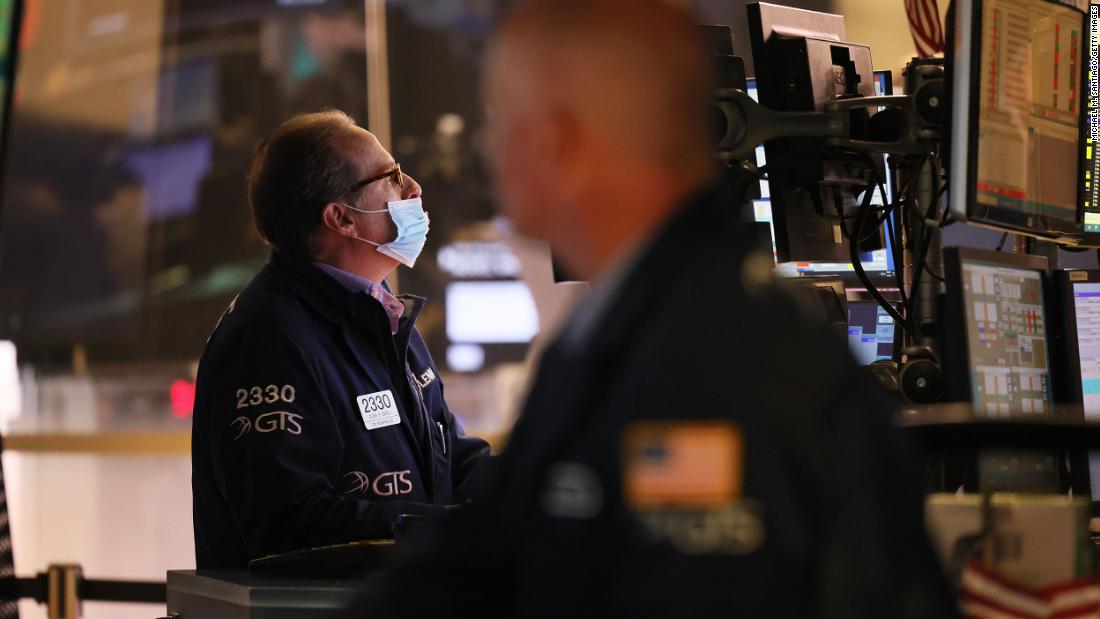
But investors woke up with a binge-trading hangover Thursday, and markets catapulted into the red as they further digested the Fed news.
All of yesterday’s gains were erased by midday and markets only got worse from there.
The Dow dropped 1,120 points, or 3.3%, the S&P 500 fell 3.7%. The Nasdaq Composite tumbled 5.2%, its worst day since 2020.
“I’ve been in the markets for 25 years and I’ve never seen anything like this,” said Danielle DiMartino Booth, CEO and chief strategist for Quill Intelligence, a Wall Street and Federal Reserve research firm. “It’s violent not just volatile.”
DiMartino Booth thinks the massive drop only makes sense if you classify yesterday’s surge as a melt-up “The markets were so poised to rally yesterday and there were probably a lot of people who were short and had to rush to cover, today is a backlash,” she said.
The rapid market swings indicate that equities markets still haven’t figured out what to do about the Fed, wrote John Lynch, chief investment officer for Comerica Wealth Management, in a note Thursday. The question they need to answer, he said, is not an easy one: “How could technology and growth sustainably lead the market higher with the Fed’s acknowledgment of inflation and commitment to higher rates?”
Market drops like today’s are unusual and reminiscent of 2008 and 2009, said Randy Frederick, managing director of trading and derivatives at the Schwab Center for Financial Research. But economic conditions are much stronger than they were at the start of the Great Recession, leaving analysts scratching their heads searching for a catalyst, he said.
So what changed between last night and today to cause investors to flip 180 degrees? “The tea leaves are hard to read right now,” Frederick said. “But this could be a sign of market capitulation, where investors are panicked to the point of throwing in the towel.” Capitulation, he added, can also indicate that we’ve reached a market bottom.
Large tech stocks led losses Thursday. Big tech is particularly vulnerable to rising rates because their promise of future innovation and subsequent earnings are valuable to investors.
Facebook parent company Meta fell by nearly 6.8%, Amazon was down 7.6%, and Google parent company Alphabet toppled 4.7%.
“In all policy moves, however, there are negative consequences, which hopefully are muted, and are less impactful than the issue that is being addressed,” wrote Rick Rieder, BlackRock’s chief investment officer of global fixed income in a note Wednesday. “The consequences we risk in policy tightening are potential recession, potential lost jobs and wages, and clearly tighter financial conditions that will weigh on virtually all financial markets.”
E-commerce stocks also dropped precipitously after reporting weak earnings for the first quarter of the year. Etsy fell by nearly 17% and eBay dropped by about 12%.
New economic data, meanwhile, showed that labor productivity dropped by 7.5% in the first quarter of 2022, its fastest decline since 1947.
